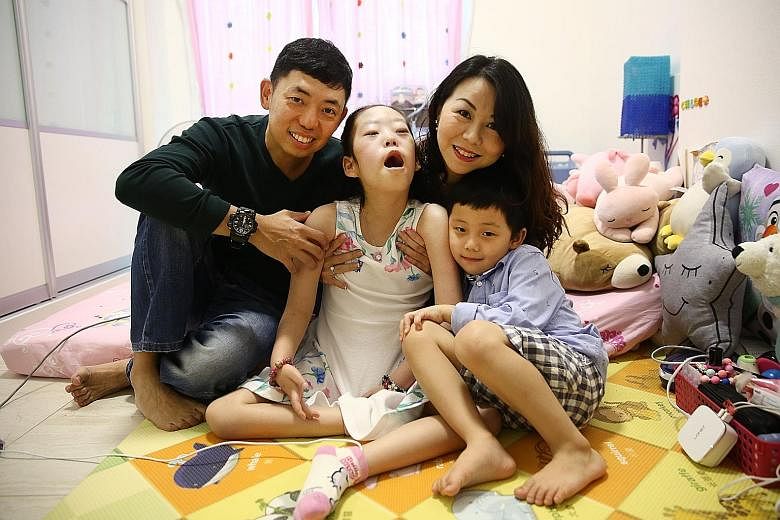Caregivers and medical professionals have hailed last week's announcement that a fund could be set up for children with rare and costly diseases.
However, they also expressed caution, saying the fund must be sustainable and widened in scope.
Mr R. Rajakanth, executive director of patient advocacy group Rainbow Across Borders, said: "The focus on children is good because they are our future, but they will grow up, so we should have a fund that also focuses on young adults.
"Once you have therapy in place, that means the child's quality of life increases. The next step is to have continual treatment, which needs sustainable funding," he said.
Senior Minister of State for Health Chee Hong Tat announced the possibility of setting up the fund last week, as the Ministry of Health (MOH) reviews how to better support children with rare diseases and their families.
Rainbow Across Borders estimates that there are 2,000 to 3,000 rare disease patients in Singapore. No official numbers are available.
Last month, The Straits Times reported on Mr Kenneth Mah, whose daughter Chloe finds breathing and coughing difficult due to Pompe disease, a genetic disorder which currently has no cure and can be fatal.
Insurance covers much of the cost of her treatment for now, which easily reaches $40,000 a month. However, as Chloe, nine, gets older and needs more of the medicine, a day will likely come when the Mah family hits the yearly claim limit.
"If I hit that limit, I will probably have to apply for this funding. That is why the money should not be only for children," said Mr Mah, who ended his mobile phone business to take care of Chloe. He is also the co-founder of the Rare Disorders Society Singapore.
"Apart from funding the treatment, we have to look into support for caregivers and families of the patients too," he added.
"Things like education, emotional health and mental health all come in a package."
An impact study by Rainbow Across Borders last year of both patients and their caregivers found that 66 per cent of respondents were not offered counselling when told of the rare disease diagnosis, and that 85 per cent of them wanted access to it.
Last month, Straits Times correspondent Amelia Teng shared her experience caring for her one-year-old son Christopher, who was born with a very rare condition called bile acid synthesis disorder. He needs to take cholic acid for life, which costs $5,000 a month.
His situation helped prompt Jurong GRC MP Tan Wu Meng to file a motion to speak in Parliament on extending more support to children with rare diseases.
When asked about Mr Chee's announcement, Dr Tan said: "I think it is an encouraging step that MOH is looking into this.
"If the fund can accept contributions from corporate players, charities, individual donors and community groups, that would also be a very strong way of recognising that rare-disease children need help from the whole of society."
Dr Tan Ee Shien, senior consultant with the genetic service at KK Women's and Children's Hospital's department of paediatrics, said: "The sharing of patient stories has allowed the public to have a better understanding of what life is like for these families. MOH's announcement gives these families hope, knowing they are not alone on this journey."
Mr Chew Tuck Choy's daughter Zecia, nine, suffers from Gaucher disease, which causes fats to accumulate in her organs and can be fatal if untreated.
"We in the community feel happy that attention is being paid to rare diseases," said the 38-year-old bell services supervisor.


